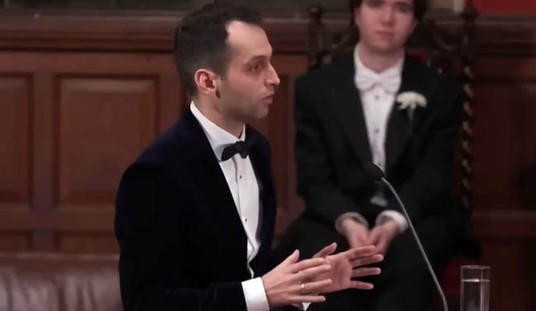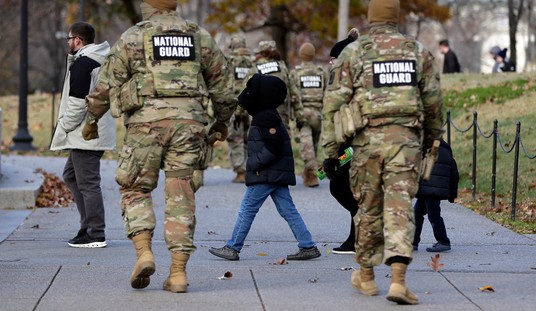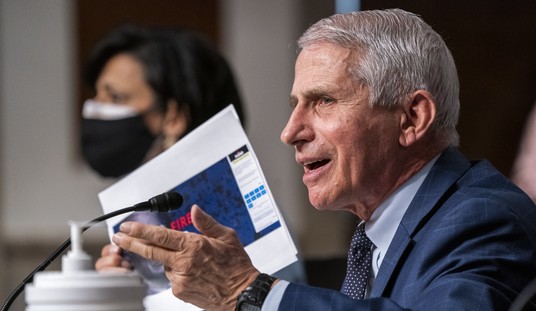The Soviet Union died on the mountain ranges of Afghanistan in the 1980s after an ill-advised, ill-fated intervention by Moscow that eventually led to the radicalization of the Pashtuns and the growth of radical Islamist terrorism. Their retreat from Afghanistan signaled the end of Soviet expansionism, and within two years, the end of the Communist superpower itself. One would presume that the Russians would have no desire to involve itself in Afghanistan again, but Asia Times reports that they may accept an American invitation to help provide weapons, lines of communication, and training for the NATO effort to stabilize the nation (via Baldilocks):
Moscow is staging an extraordinary comeback on the Afghan chessboard after a gap of two decades following the Soviet Union’s nine-year adventure that ended in the withdrawal of its last troops from Afghanistan 1989. In a curious reversal of history, this is possible only with the acquiescence of the United States. Moscow is taking advantage of the deterioration of the war in Afghanistan and the implications for regional security could be far-reaching.
A joint statement issued in Moscow over the weekend following the meeting of the United States-Russia Working Group on Counterterrorism (CTWG) revealed that the two sides had reached “agreement in principle over the supply of Russian weaponry to the Afghanistan National Army” in its fight against the Taliban insurgency. The 16th session of the CTWG held in Moscow on June 19-20 was co-chaired by Russian Deputy Foreign Minister Sergei Kislyak and US Under Secretary of State for Political Affairs William Burns.
Talking to reporters alongside Burns, Kislayak said, “We [Russia] in the past have already provided military equipment to Afghanistan and we feel there is now a demand by the Afghan population for the ability of Afghanistan to take its security in its own hands.” He added it was “possible” that Russia might increase the delivery of arms to Afghanistan, though “I wouldn’t be eager to put a number on it”.
Up to now, the US has opposed any Russian involvement, for obvious reasons. Both the allies and the enemies in Afghanistan hate the Russians and their occupation, the cause of woes then and now. Russian involvement would cast doubt on the motives of NATO and put fear into the Karzai government that the West may wind up abandoning Afghanistan to the Russian sphere of influence. It would launch a thousand conspiracy theories on both sides of the conflict and could energize the mujaheddin all over again.
However, a partnership with Russia has its advantages now. With Pakistan teetering on the edge of appeasement, the lines of communication to the NATO mission could get very difficult. With NATO members teetering on the edge of abandoning their commitments to the mission, Russian assistance could keep them in the fold, especially if it helps reduce the tensions over NATO’s expansion.
What does Russia gain from its efforts in an arena they’d like to forget? It provides them with leverage to slow down NATO expansion and have it redirected in a more cooperative manner. Putin’s government has already begun to complain about new “Berlin Walls” between Europe and Russia, and anything that keeps NATO at bay has to look good to Russia. Afghanistan has strategic significance for Moscow still, and they probably don’t mind seeing the Iranian mullahs sweating over the encirclement that the US has established. What they don’t want is a repeat of the 1989 collapse that led to the Taliban mullahs taking control of the country and wreaking instability in the region.
Russia trained Afghan military leaders in the 1980s to support Mohammad Najibullah’s regime. They could try to re-establish that cadre of leaders in the newly-rebuilt Afghan security forces, but that might be far too provocative for Hamid Karzai to tolerate. Supplies and lines of communication will help enough for the moment, but NATO may discover that having allowed the Russian bear into the camp, it may be difficult to limit his mobility.









Join the conversation as a VIP Member